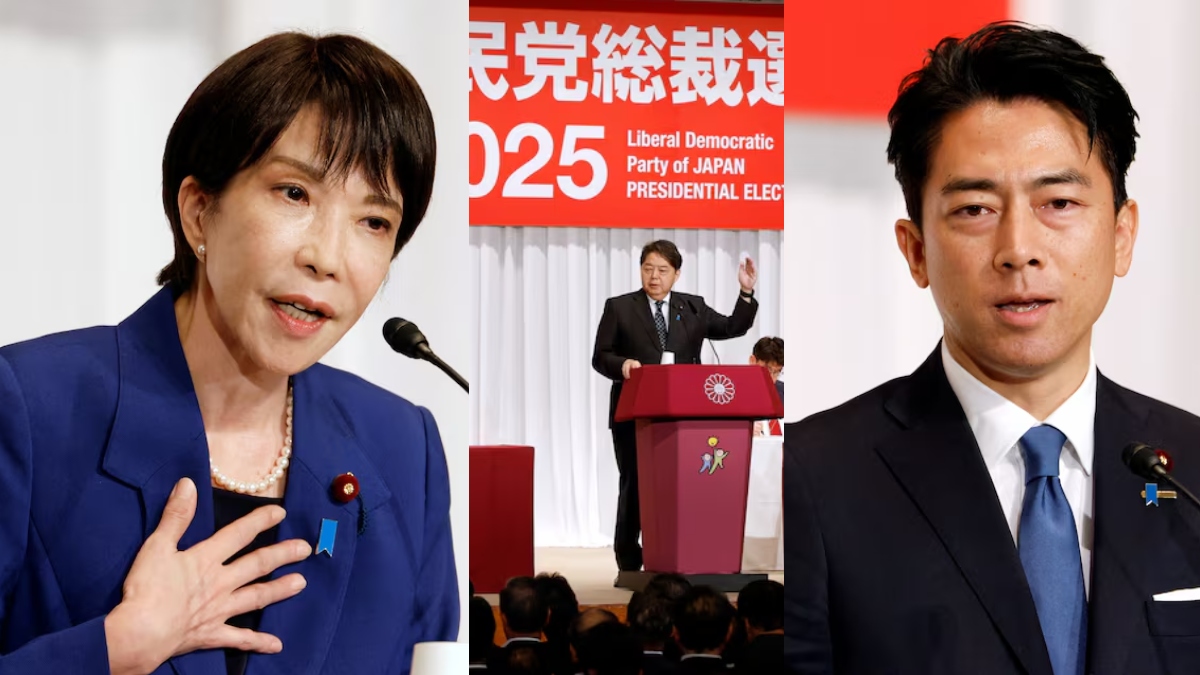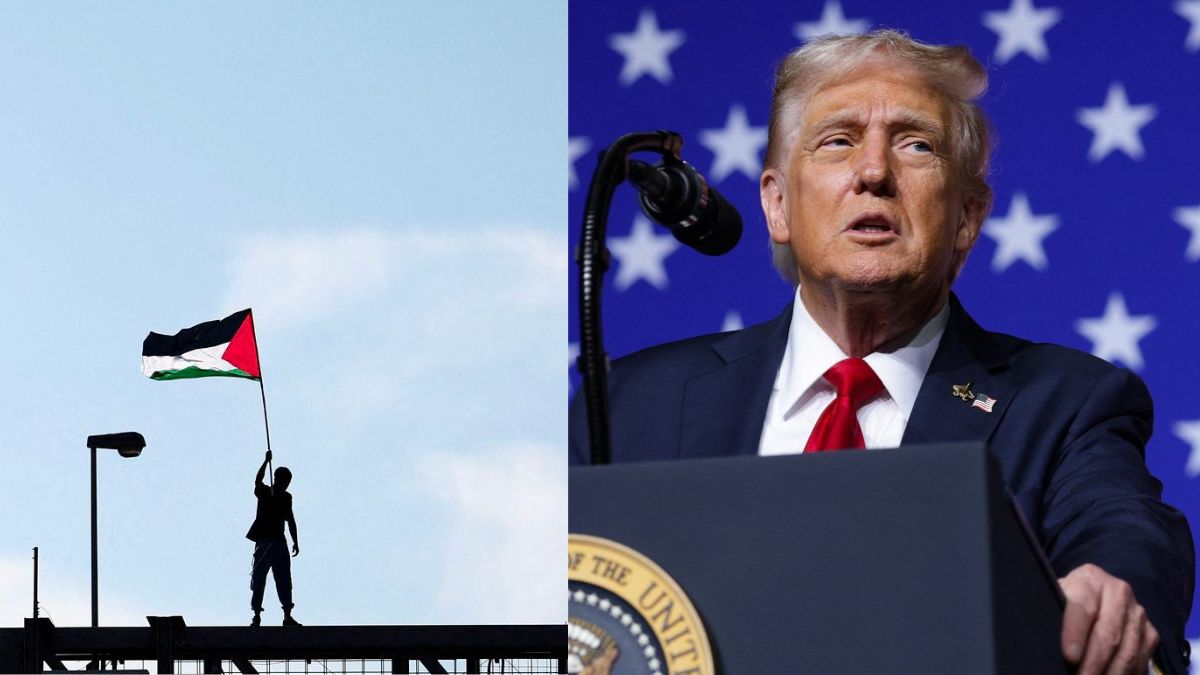Japan’s long-ruling Liberal Democratic Party is set to choose a new leader on Saturday after the country’s Prime Minister Shigeru Ishiba announced that he is stepping down. Here’s a look at the 5 top candidates in the race ahead of the polls.
Japan’s long-ruling Liberal Democratic Party is set to choose a new leader on Saturday after the country’s Prime Minister Shigeru Ishiba announced that he is stepping down. There are five lawmakers who are vying for the prime ministerial post amid political dissatisfaction in the country.
The next leader who will be chosen by the lawmakers in the Saturday ballot is likely to be the country’s PM since the LDP continues to remain the largest party in the lower house. The frontrunners in the vote are former economic security minister Sanae Takaichi and Farm Minister Shinjiro Koizumi, who also ran in a party leadership race in September last year.
What makes the Saturday ballot significant is the fact that Japan is most likely to witness history. Either the country will see its first female PM or the youngest premier. Here’s a look at the 5 top candidates in the race ahead of the polls.
Sanae Takaichi
What makes her candidature significant is that if Takaichi is chosen, she would be Japan’s first female prime minister. In the past, she has held several roles, including economic security and internal affairs minister, and lost to Ishiba in the LDP leadership race in a run-off vote last year.
Takaichi has pledged to increase spending and cut taxes while addressing the party on Friday. She went on to call for restarting nuclear power plants and establishing a panel to screen foreign investment in sensitive industries.
Known for her nationalistic views, Takaichi is a regular visitor to Yasukuni shrine, which honours Japan’s war dead, including convicted war criminals, and is viewed by some Asian neighbours as a symbol of its past militarism. Earlier this year, Takaichi also paid a visit to Taiwan, the democratic island claimed by China, where she suggested Taiwan, Japan and other partners could form a “quasi-security alliance”.
Shinjiro Koizumi
The political scion is part of a family which had a hand in governing Japan for more than a century. If he is chosen by the party, he would become the country’s youngest prime minister.
Koizumi is the son of popular former prime minister Junichiro Koizumi. He gained prominence in recent months for overseeing the government’s efforts to manage a backlash over surging rice prices. He has pledged to boost wages and productivity to counter rising prices in a speech on Saturday.
In his only other cabinet post, as environment minister, Koizumi faced ridicule for remarks that climate policy needed to be “cool” and “sexy”. He is a keen surfer, and his brother is a well-known actor in Japanese television and film.
Yoshimasa Hayashi
The 64-year-old has been Japan’s chief cabinet secretary, a pivotal job that includes serving as the top government spokesperson, since December 2023, under then-premier Fumio Kishida and Ishiba.
If he wins the ballot, Hayashi has pledged to compile a package of relief measures to cushion the blow from the rising cost of living and bolster disaster relief. He has also backed the Bank of Japan’s rate-hike strategy.
Toshimitsu Motegi
The former Foreign Minister of Japan has a reputation as a tough negotiator and handled talks with US Trade Representative Robert Lighthizer during US President Donald Trump’s first term. Interestingly, Motegi was a regular golfing partner of slain former premier Shinzo Abe; he has also served as trade minister, economy minister and the LDP’s secretary general.
Motegi studied at the Harvard Kennedy School and worked at the Yomiuri newspaper and consulting firm McKinsey before entering politics in 1993, according to Reuters.
Takayuki Kobayashi
The 50-year-old served as an economic security minister under Kishida. He started his career at the finance ministry and worked at Japan’s embassy in the US. He is also a graduate of Harvard Kennedy School. He has proposed temporary flat-rate tax reductions and advocates strengthening regulations on foreign acquisitions of companies and land.
Like Takaichi, he appeals to the LDP’s conservative faction with arguments like revising Japan’s pacifist constitution to recognise the role of Japan’s Self Defence Forces.
With inputs from Reuters.
End of Article

)
)
